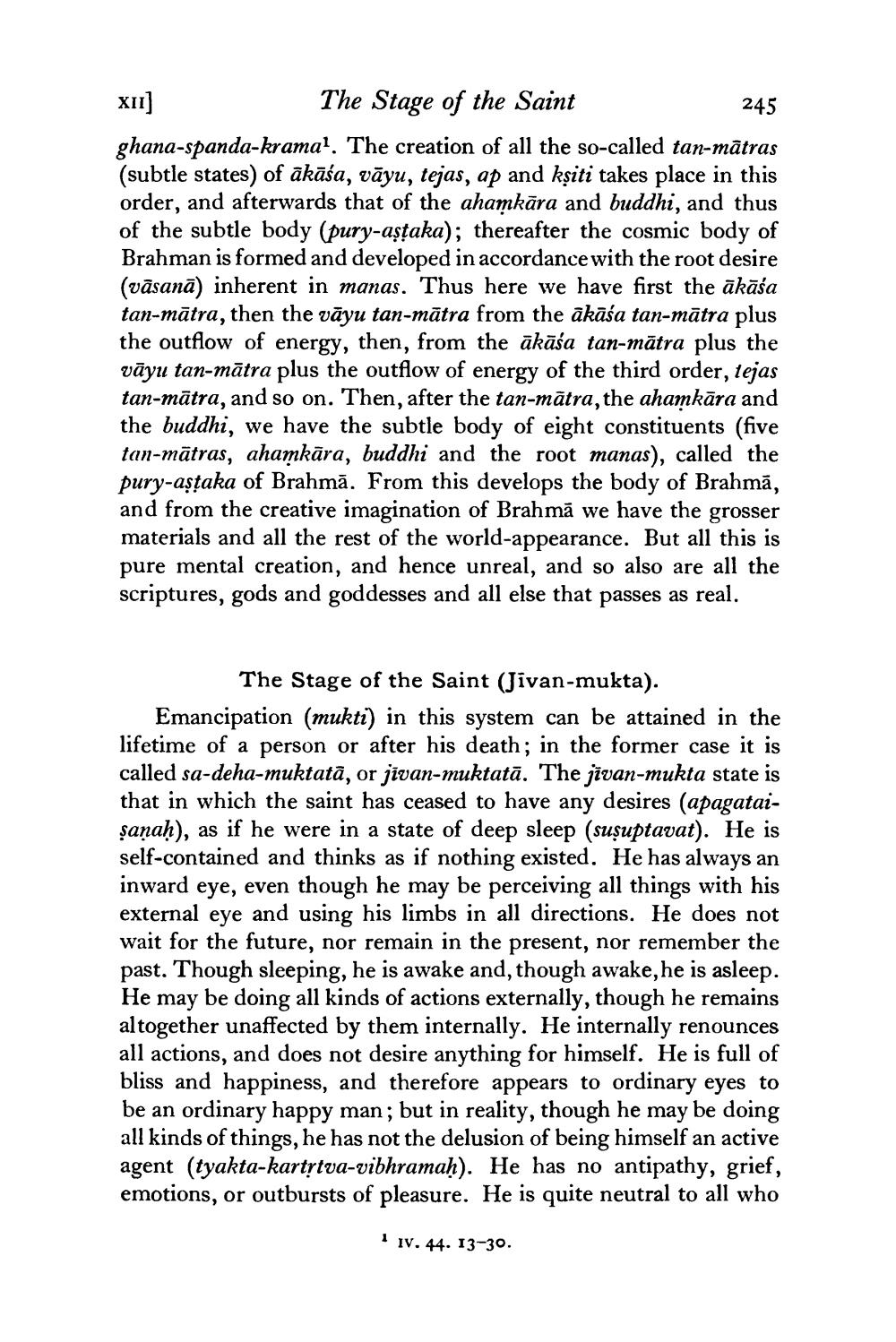________________
245
XII]
The Stage of the Saint ghana-spanda-krama'. The creation of all the so-called tan-mātras (subtle states) of ākāśa, vāyu, tejas, ap and kşiti takes place in this order, and afterwards that of the ahamkāra and buddhi, and thus of the subtle body (pury-așțaka); thereafter the cosmic body of Brahman is formed and developed in accordance with the root desire (vāsanā) inherent in manas. Thus here we have first the ākāśa tan-mātra, then the vāyu tan-mātra from the ākāśa tan-mātra plus the outflow of energy, then, from the ākāśa tan-mātra plus the vāyu tan-mātra plus the outflow of energy of the third order, tejas tan-mātra, and so on. Then, after the tan-mātra, the ahamkāra and the buddhi, we have the subtle body of eight constituents (five tan-mātras, ahamkāra, buddhi and the root manas), called the pury-așțaka of Brahmā. From this develops the body of Brahmā, and from the creative imagination of Brahmă we have the grosser materials and all the rest of the world-appearance. But all this is pure mental creation, and hence unreal, and so also are all the scriptures, gods and goddesses and all else that passes as real.
The Stage of the Saint (Jivan-mukta). Emancipation (mukti) in this system can be attained in the lifetime of a person or after his death; in the former case it is called sa-deha-muktatā, or jivan-muktatā. The jivan-mukta state is that in which the saint has ceased to have any desires (apagataiṣaṇaḥ), as if he were in a state of deep sleep (suşuptavat). He is self-contained and thinks as if nothing existed. He has always an inward eye, even though he may be perceiving all things with his external eye and using his limbs in all directions. He does not wait for the future, nor remain in the present, nor remember the past. Though sleeping, he is awake and, though awake, he is asleep. He may be doing all kinds of actions externally, though he remains altogether unaffected by them internally. He internally renounces all actions, and does not desire anything for himself. He is full of bliss and happiness, and therefore appears to ordinary eyes to be an ordinary happy man; but in reality, though he may be doing all kinds of things, he has not the delusion of being himself an active agent (tyakta-kartytva-vibhramaḥ). He has no antipathy, grief, emotions, or outbursts of pleasure. He is quite neutral to all who
IV. 44. 13-30.




